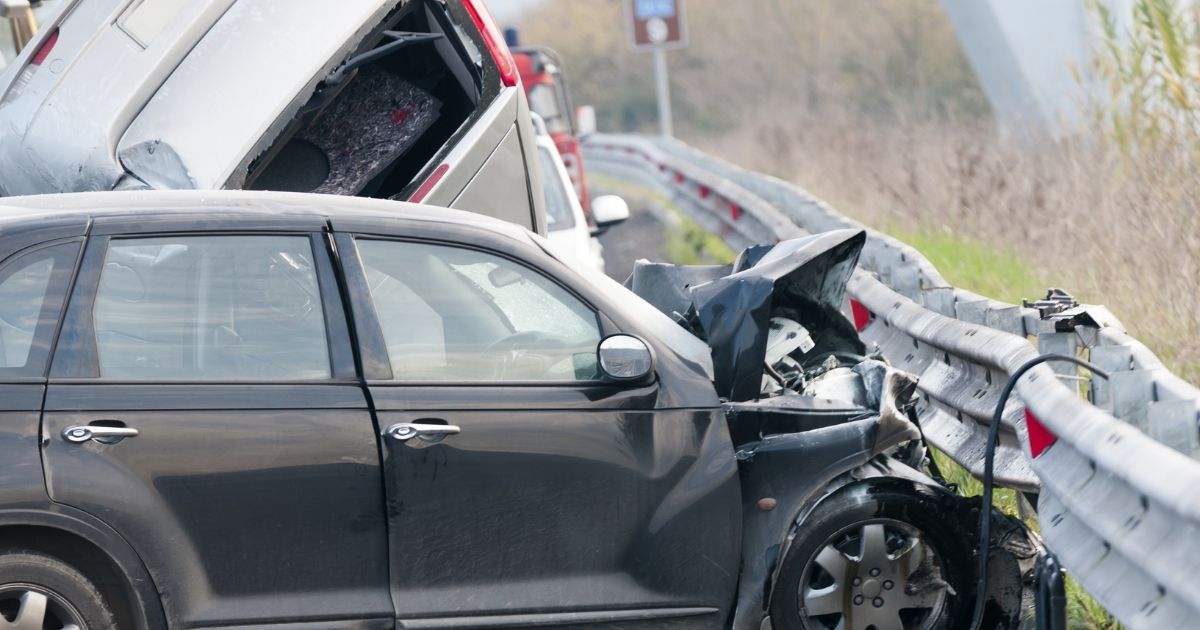When you think about a vehicle totaled in a car accident, you may picture a devastating scene where the vehicles involved are mangled beyond repair. However, while the vehicles involved in a scenario like that would likely be considered totaled, insurance companies consider various factors when determining whether a car is totaled and whether your policy covers that damage.
If your vehicle was damaged in a car accident, insurance companies generally consider a car totaled if the cost of repairing the car is more than the total value of the vehicle. When assessing the vehicle, insurance companies will generally consider the condition and structure of the vehicle, as well as state laws that define what a total loss is based on specific thresholds.
To determine whether a vehicle is a total loss, insurance companies will calculate the actual cash value (ACV) of the vehicle before the accident and estimate the degree of property damage. In most cases, insurance companies work with a third-party vendor who will collect and analyze vehicle data to determine the ACV. The insurance company will send an adjuster to inspect the damage and provide an estimate for the cost of repairs.
Depending on the nature of the accident and the circumstances of the loss, four types of insurance may cause a total loss, including the following:
- Collision: This coverage is used if you are in a collision with another vehicle or a stationary object, like a fence or a lamppost.
- Comprehensive: This covers damage caused by weather conditions, like hurricanes, floods, and other severe weather events, as well as vandalism and theft.
- Property damage liability: If the other driver was at fault for causing the accident, their property damage liability coverage will likely pay for the damage to your vehicle, assuming they have insurance.
- Uninsured/underinsured motorist: This coverage will cover you if the other driver involved in the accident does not have insurance or is underinsured.
What Steps Should I Take if My Car Is Totaled?
If your car was damaged to the point where it is considered a total loss, there are steps you can take to ensure that the claims process goes as smoothly as possible:
- File a claim. You must contact your insurer to file a claim, whether you were involved in a minor fender-bender or a severe collision.
- Assess the damage. Once you have notified your insurance company about the accident, they will send an adjuster to assess your vehicle’s damage. After conducting a visual inspection of the damage, they will estimate the cost of repairs.
- Estimate your vehicle’s fair market value (FMV). You can refer to resources like Kelley Blue Book to check your vehicle’s FMV or see what similar makes and models are selling for in your area.
- Contact your lender. If you lease your vehicle or have a loan, your vehicle secures your financing. Therefore, it is important that you notify the financing company about the damage to the vehicle and that you continue making your payments. If you stop payments, it could affect your credit score, making it difficult to secure a loan for a new vehicle. The insurance company will send payments when the claim has been settled.
- Negotiate your claim. If you receive the insurance company’s assessment of your vehicle’s ACV and you believe it is unfairly low, you can negotiate the payout, but you will need to prove that your vehicle is worth more than the insurance company is offering. A car accident lawyer can assist you with this process.
- Look for a new car. It is unlikely that the money you receive from the insurance carrier will cover the cost of a new model of your car that was totaled, but you can use the money towards a down payment on a new vehicle or consider purchasing a used car.
What if the Settlement Amount Does Not Pay Off My Loan?
If you took out a loan to purchase your vehicle, you are responsible for making monthly payments until the car is paid off. Even if you were in a serious car accident and your vehicle was totaled, you must continue making your payments until a settlement has been reached. Ideally, if the insurance company deems your vehicle a total loss, the insurance payment will cover paying off your loan. However, if the actual cash value is less than the amount you still owe on your car loan, you will be responsible for that balance. You may purchase gap insurance, an optional auto insurance coverage available if your vehicle is deemed a total loss. An experienced car accident lawyer can assist you with this and address any questions or concerns about what to do if your car is totaled.
Speak With Our Skilled Dayton Car Accident Lawyers at Wright & Schulte LLC
Contact our Dayton car accident lawyers at Wright & Schulte LLC if you were involved in a serious car accident. To schedule a free, confidential consultation, call us today at 937-222-7477 or contact us online. Located in Dayton, Ohio, we serve clients in Cincinnati, Columbus, Cleveland, Centerville, Toledo, Youngstown, and Miamisburg.



